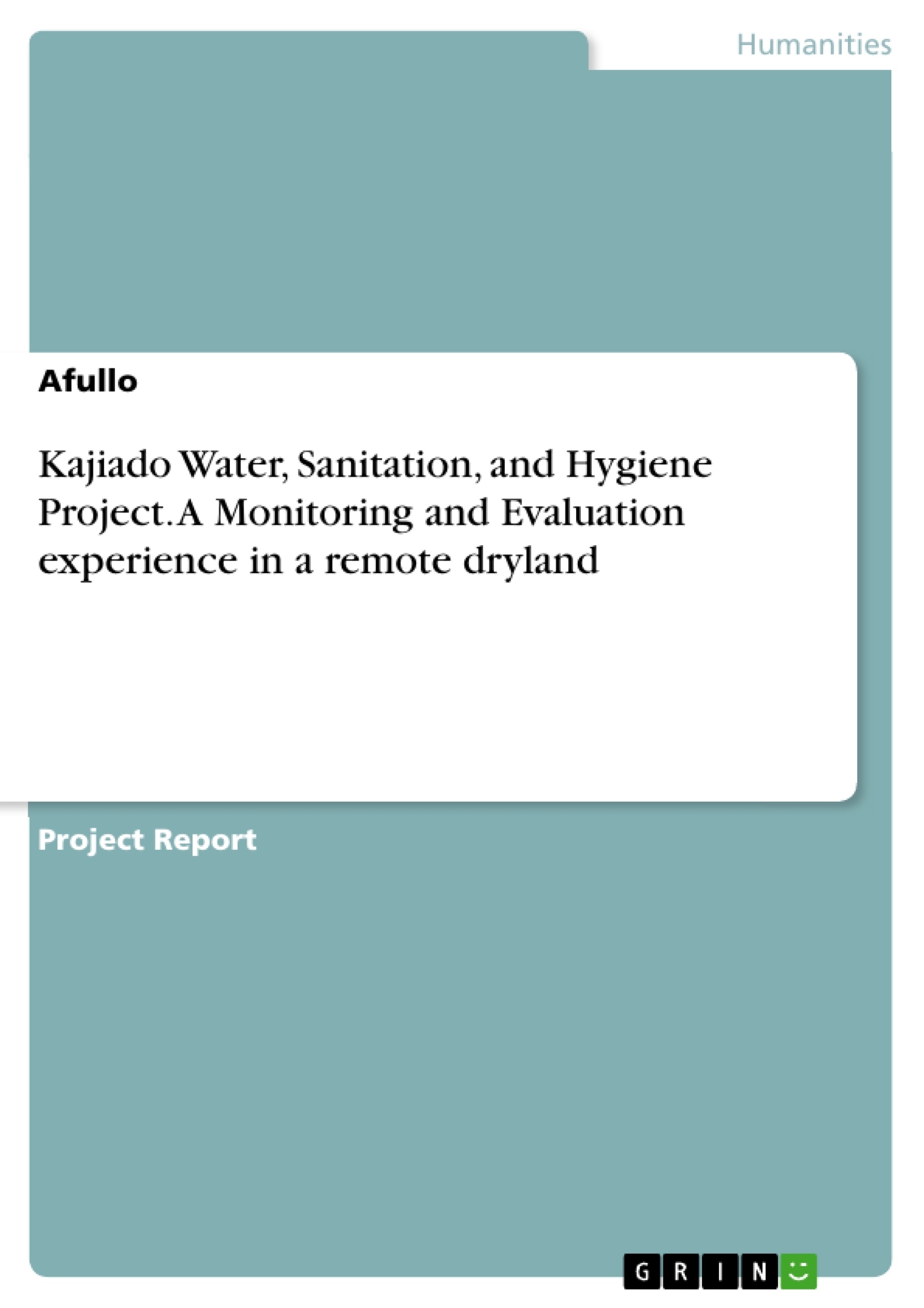Kajiado County is located in the southern part of Kenya. It borders Nairobi County to the North East, Narok County to the West, Nakuru and Kiambu Counties to the North, Taita Taveta County to the South East, Machakos and Makueni Counties to the North East and east respectively, and the Republic of Tanzania to the South. It is situated between Longitudes 360 5’ and 370 5’ East and between Latitudes 10 0’ and 30 0’ South. The county covers an area of 21,900.9 square kilometres (Km2). Its geography is characterised by plains, valleys, and occasional volcanic hills ranging from an altitude of 500 metres above sea level at Lake Magadi to 2500 metres above sea level in Ngong Hills.
Topographically, the county is divided into three different areas namely; Rift Valley, Athi Kapiti plains, and Central Broken Ground. The occurrence of groundwater depends on climate, topography, as well as origin of the underlying rocks. Groundwater yields vary throughout the county from 0.01 to 35.77 cubic metres per hour. Average groundwater is reported as good quality and is used for domestic, livestock, and irrigation purposes. High yielding springs are found on the slopes of Mt. Kilimanjaro, with an average yield of 20m³/hr to 50m³/hr. Other sources of water for domestic and livestock use are sub surface sources such as water pans, dams, and shallow wells.
Vegetation cover and browse for livestock, the main source of livelihood, is variedly distributed based on altitude, soil type, and rainfall distribution. The County is divided into five administrative sub-counties namely: Kajiado Central, Kajiado North, Loitokitok, Isinya, and Mashuuru, with a total of 17 administrative divisions.
WV Kenya operates in Kajiado Central in Lorngosua division, where Osiligi Area Development Programme (ADP) is located. It is about 160 KMs South West of Nairobi, the capital city of Kenya. It is situated between Longitude 36' and 37' and between latitude I 'and 3' south. The ADP covers eight locations; Lorngusua, Ruanche, Meto, Kumpa, Mailua, Oloirimirimi, Noosikitok, and Eluanata locations. The proposed second phase of the project will continue to cover Meto location and Lorngosua location with an addition of Oloirimirimi location. Meto location has a total population of 3,500 people, of whom 1,742 are female and 532 are children under two years of age. Lorngosua location has a total projected population of 3246, of which 1,862 are female and 162 are children under two years.
Inhaltsverzeichnis (Table of Contents)
- INTRODUCTION
- EXECUTIVE SUMMARY
- 1. EVALUATION OVERVIEW
- 1.1 Summary of findings
- 1.2 Background:
- 1.3 The Last Phase of Baby wash: Replication of Baby Wash Programming
- 1.4 Evaluation Type
- 1.5 Evaluation Purpose and Objectives.
- 1.6 2019 Survey Purpose and Objectives..
- 1.7 2019 Survey Questions.......
- 1.8 2018-2019 Project Interventions//Treatments.
- 2. EVALUATION METHODOLOGY
- 2.1 Introduction
- 2.2 Evaluation Design
- 2.3 The MEP approaches..
- 2.4 Evaluation Approach and instruments..
- 2.5 Study Population
- 2.6 Study Design and Sampling
- 2.7 Evaluation participant selection for qualitative methods.........
- 2.8 Recruitment of the field team.
- 2.9 Mobilization
- 2.10 Data Collection, Entry and Analysis
- 2.11 Data Quality Management and Control......
- 2.12 Ethical Considerations
- 2.13 COVID 19 protocols .....
- 3. FINDINGS.………………………
- 4. RESULTS AND DISCUSSIONS
- 4.1 Demographic information of the respondents.
- 4.2 Water access, supply and quality.
- 4.3 Sanitation....
- 4.4 Hygiene................
- 4.5 Health facilities access and services..
- 4.6 Child and household morbidity status
- 4.7 Clean play space, trial for improved practices (tips) and CHV effectiveness:.
- 4.8 Some Community views On What Worked, Not Worked, Sustainability and Recommendations..........\n
- 4.9 Dietary diversity and immunization services.
- 4.10 WASH in Health facility...\n
- 5. LESSONS LEARNED.....
- 6. CONCLUSION AND RECOMMENDATIONS.
- 6.1 Conclusions..
- 6.2 Recommendations
- 7. REFERENCES…………………………………..\n
Zielsetzung und Themenschwerpunkte (Objectives and Key Themes)
This report provides a comprehensive evaluation of the Integrated Baby WASH Project implemented in Kajiado County, Kenya. The evaluation aimed to assess the project's effectiveness in improving water, sanitation, and hygiene (WASH) practices, particularly for children under five years old. The report analyzes data collected through surveys, interviews, and observations to understand the project's impact on various aspects of WASH-related behavior and access to essential services.
- Impact of WASH interventions on child health and wellbeing
- Effectiveness of community-based approaches in promoting WASH behavior change
- Accessibility and quality of WASH facilities and services in the project area
- Sustainability of project interventions and their potential for replication
- Lessons learned and recommendations for future WASH initiatives
Zusammenfassung der Kapitel (Chapter Summaries)
- Introduction: Provides a brief overview of the Integrated Baby WASH project, its objectives, and the evaluation's scope and methodology.
- Evaluation Methodology: Outlines the evaluation design, including the use of mixed methods, data collection tools, and sampling strategies.
- Findings: Presents the results of the data analysis, highlighting key findings on demographic characteristics, WASH access, sanitation practices, hygiene behaviors, health facility utilization, child morbidity, and community views on project effectiveness.
- Lessons Learned: Discusses the key insights gained from the evaluation, emphasizing successful strategies, challenges encountered, and areas for improvement.
Schlüsselwörter (Keywords)
This evaluation report focuses on the Integrated Baby WASH project, emphasizing WASH interventions, child health, community engagement, access to services, behavior change, and sustainability.
- Quote paper
- Prof. Afullo (Author), 2021, Kajiado Water, Sanitation, and Hygiene Project. A Monitoring and Evaluation experience in a remote dryland, Munich, GRIN Verlag, https://www.hausarbeiten.de/document/1391762


